- Advice
- Camping Tips
- Camping With A Baby
Top Tips for Camping with a Baby
Camping with a baby can be a fantastic experience for the whole family. To ensure your trip is easy and enjoyable, you’ll need to prepare and pack some essential items thoroughly. We’ve compiled a list of our top tips, as well as the things you need to pack when camping with a baby.
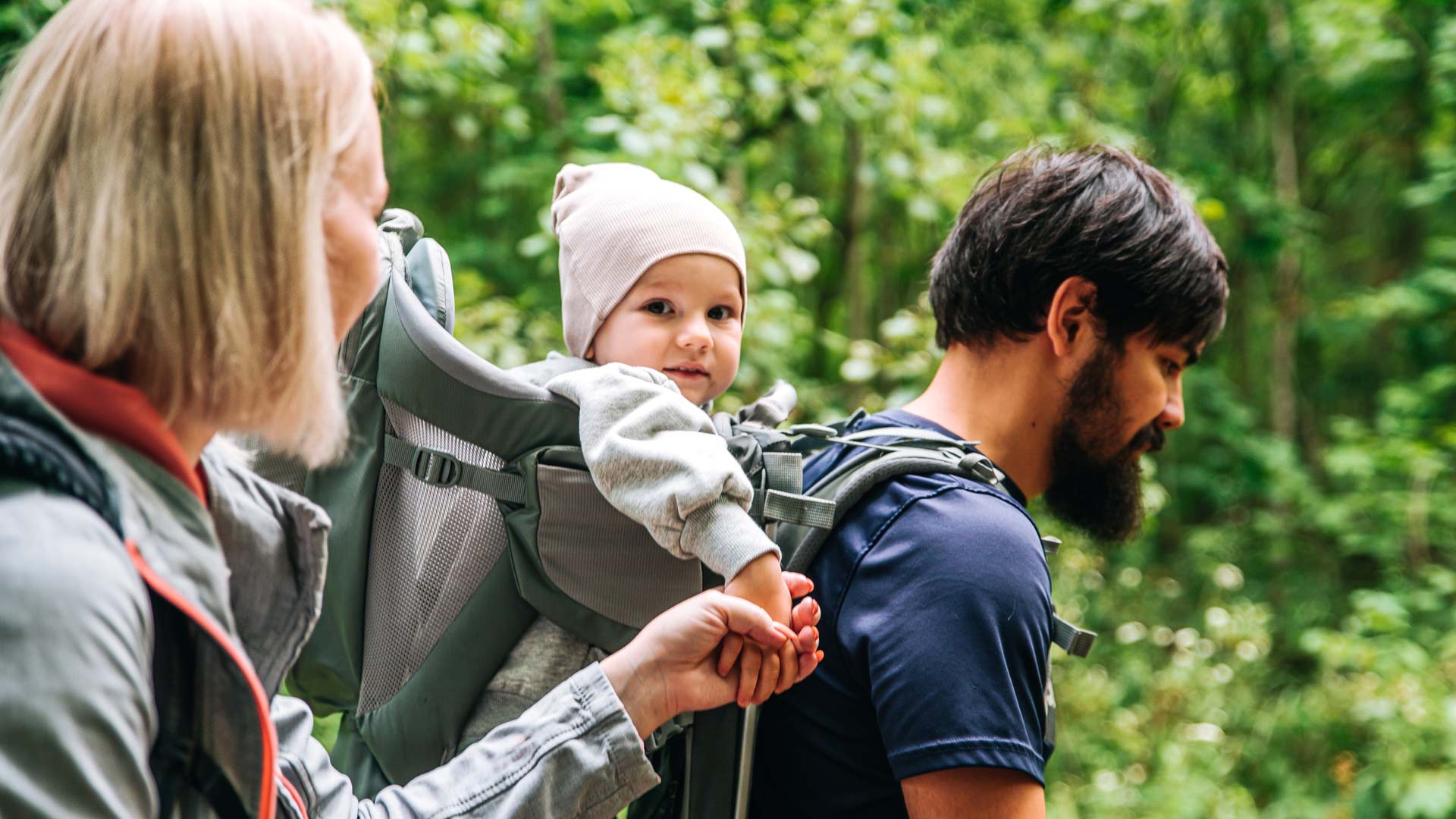
Can you camp with a newborn?
Yes, you can camp with your baby as soon as you feel ready. Some parents are comfortable camping with a new baby from a few weeks old, while others prefer to wait longer. Key factors to consider include your recovery from childbirth and the weather—since newborns can’t regulate their body temperature well, camping in very hot or cold conditions isn’t ideal.
Camping safety tips with a baby
Here are a few safety tips for camping with your baby:
- Choose the right campsite – a family-friendly campsite with good facilities (toilets, clean water, electricity) not too far from home is the perfect place for your first camping trip with your baby.
- Protection from insects and sun – baby-safe suncream (for babies 6+ months) and insect repellent are essential. For babies under 6 months, you’ll need to seek shade during sunny periods and keep the baby well covered.
- Practice safe sleep – follow the same sleep rules as you would at home. Your baby needs to be on a firm, flat surface clear of loose items like blankets and toys.
- Stick to your routine – keep feeding and sleep times as close to normal as possible.
1. Choose a family-friendly campsite
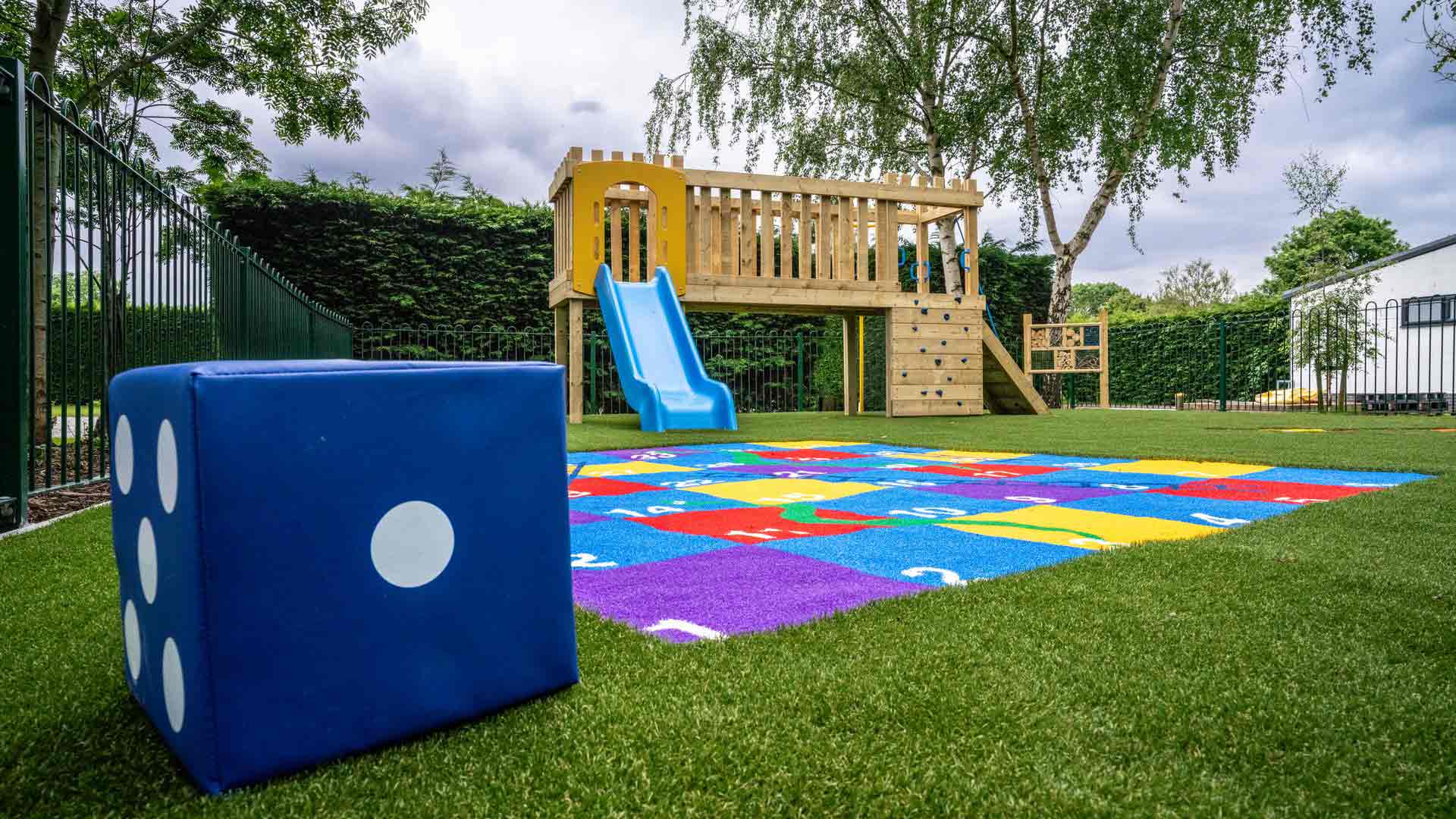
Our Club Sites are all family-friendly and located close to some of the UK’s top attractions, including Legoland, Drayton Manor and Flamingo Land. Our campsites offer various facilities which you can view before booking. Some of our facilities include:
- Play areas
- Ball game areas
- Wi-Fi
- Shops
- Parent and baby rooms
- Washing machines
- Ice pack freezing
2. Keep dinnertime simple
Choosing a pitch with an electric hook-up can make camping with a baby much easier. It allows you to store milk and food safely, making it more convenient to prep bottles or meals. Tent campers can plug in a fridge or cooler, use a kettle, or run a bottle prep machine without hassle. If you're in a caravan or motorhome, having mains power means you won’t need to rely on your leisure battery—giving you a steady, worry-free supply of electricity throughout your stay.
3. Camp close to home
Things don’t always go according to plan. For your first few camping trips with a baby, choose a campsite that is close to home for a bit of security. If you decide you need to return home, being within a few hours of travelling is ideal. Search by town, city, or postcode on Siteseeker to find a campsite close to home.
4. Make sterilising easy
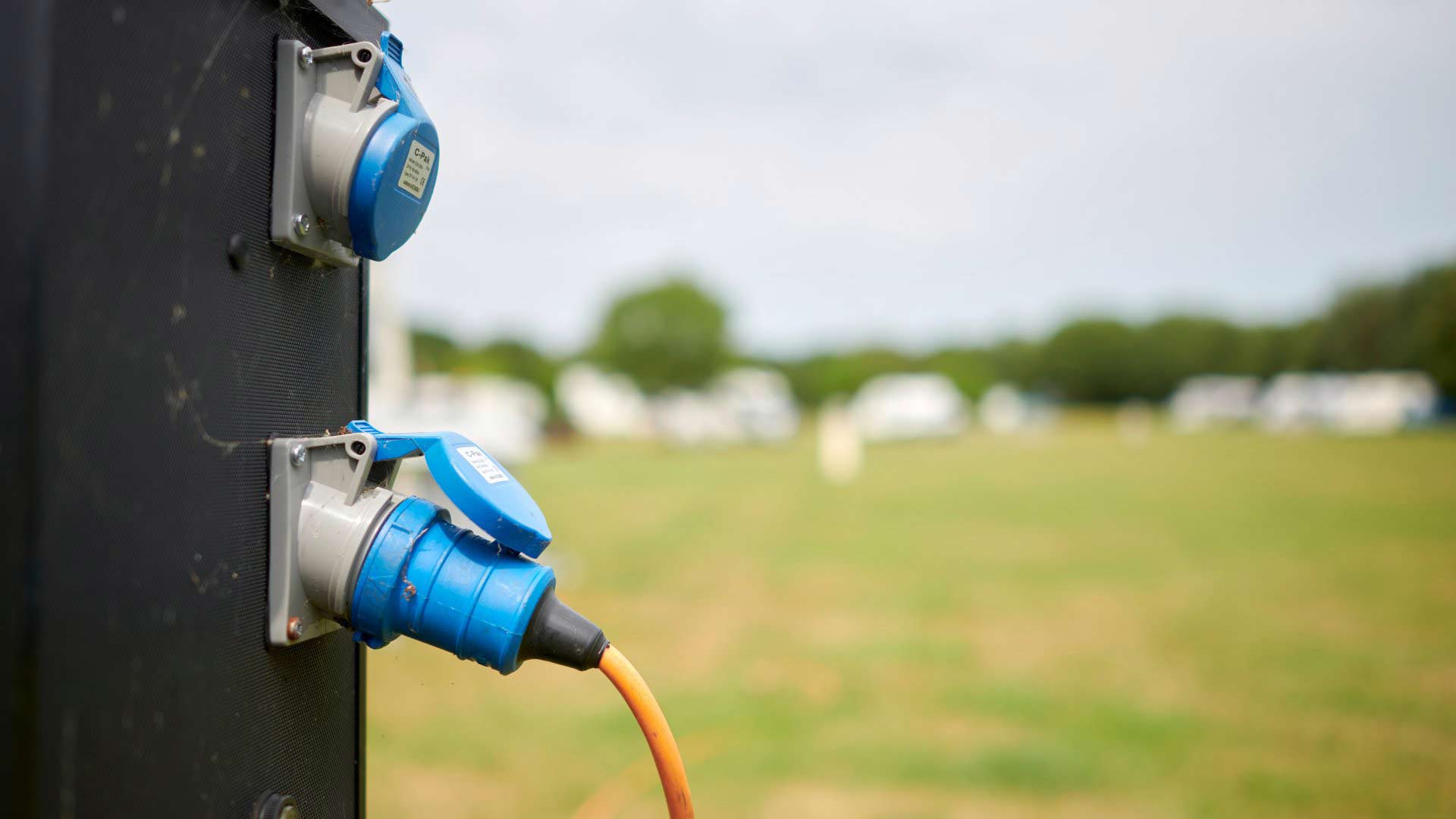
Depending on your chosen sterilisation method, you can usually sterilise bottles, dummies, and feeding accessories just as you would at home. If you plan to use an electric steriliser or microwave sterilising bags, be sure to book a pitch with an electric hook-up to ensure you have the power you need.
5. Trial in your back garden
If you’re planning on camping with your baby in a tent for the first time, why not try your camping trip at home? Pack up your stuff and pitch your tent in the garden and see how you get on with a night in the great outdoors. This will give you an idea of how you will get on at the campsite, as well as any extra items you might need to buy before your trip.
6. Choose baby-friendly camping accommodation
Choosing the right tent can make a huge difference to how comfortable and stress-free your camping trip with a baby can be. Look for a tent that’s spacious enough to accommodate both your baby gear and general camping kit, ideally with plenty of built-in storage pockets to help keep everything organised. You'll also want something that’s quick and easy to pitch as wrestling with poles while juggling a tired baby isn’t anyone’s idea of fun!
Weather protection is key, so opt for something with a hydrostatic head (HH) of 3000mm or higher, featuring taped seams and bathtub floors. Once the baby is old enough to sleep in a separate room, you’ll also want blackout bedrooms for naps and early bedtimes.
For many families, investing in a caravan, motorhome, or campervan is worth considering. The added comfort, reliable weatherproofing, private bathroom facilities, and noise reduction can make camping feel more like a home-from-home experience.
7. Get used to wearing a baby carrier
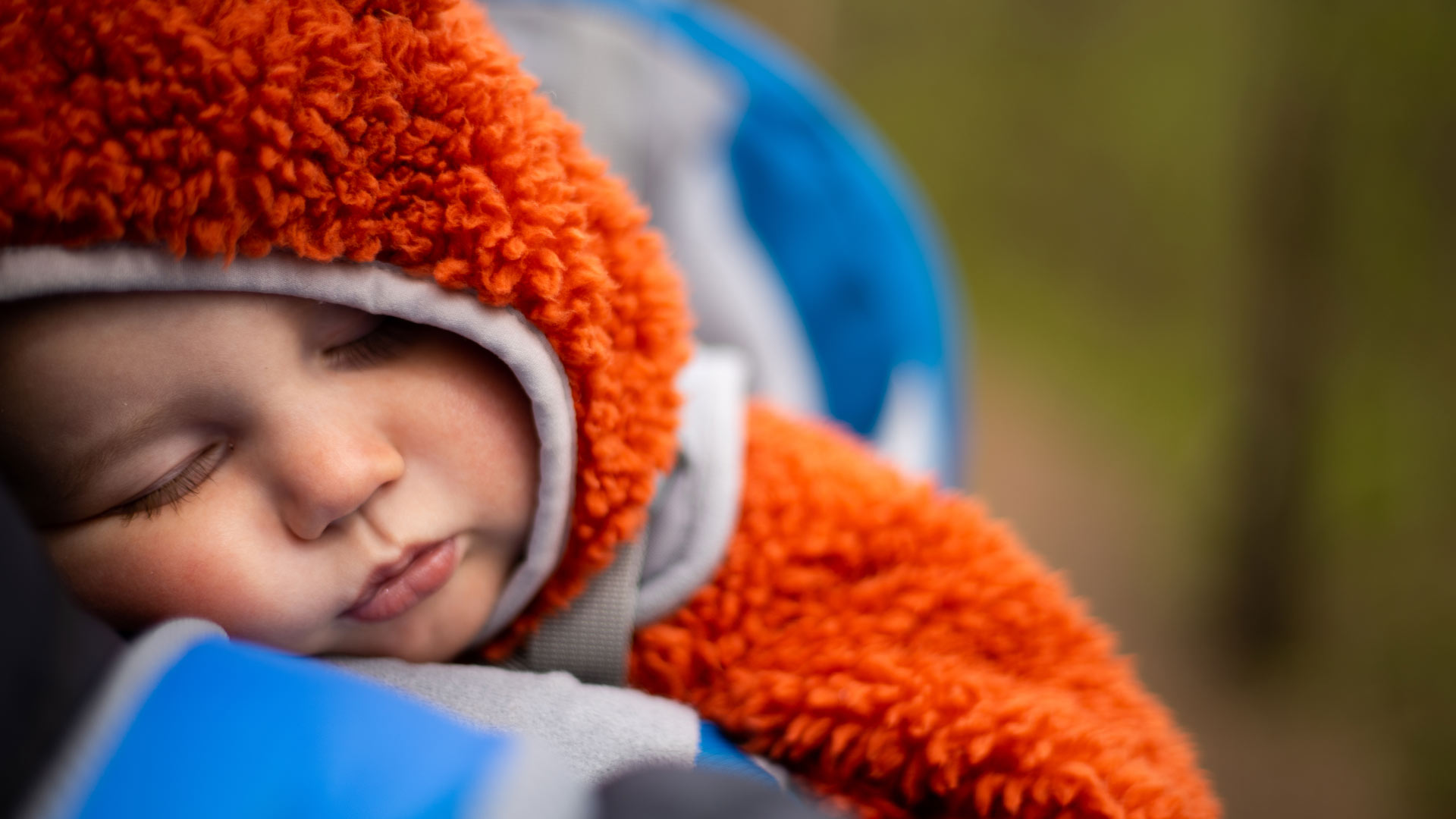
The British countryside wasn't formed with pushchairs in mind. If you're planning on spending time exploring during your camping trip, having a reliable baby carrier is ideal. It also allows you to carry baby around and keep both hands free. You can get sturdy baby carriers with sunshades if you're planning on summer hikes.
8. Invest in a good travel cot
There are lots of travel cots on the market. You'll need to find one that fits in your unit, whether that's a tent, campervan or caravan. Most models have a strong frame and base, with a flat, waterproof mattress. Take a look at the extra features each one offers; some come with accessories like changing mats or blackout panels. Travel cots also double as playpens, allowing you to keep your hands free while setting up your tent or while cooking dinner.
9. Pack baby essentials
Alongside your usual baby essentials, here’s a list of items which you might find invaluable on your camping trip:
- Insulated bottle bag or portable bottle warmer
- Travel highchair
- Collapsible washing up bowl
- Sunshade
- UV protection clothing
- Wet bag
- Play mat
- Baby first aid kit
- All-terrain pram
10. Pack clothes for all weather
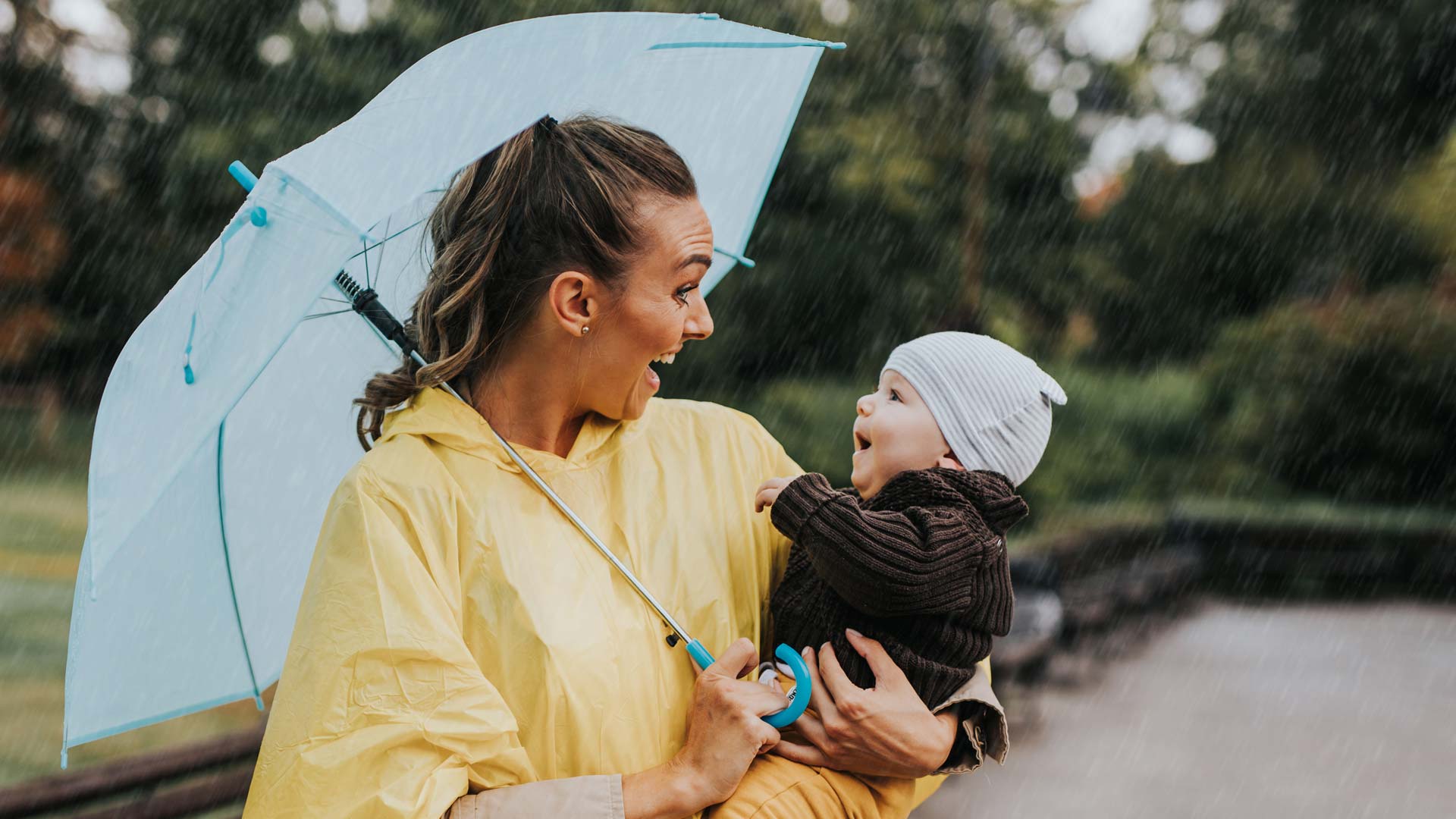
Due to Britain’s typically unpredictable weather, it’s worth packing a variety of clothes to ensure you and your baby are always comfortable. Here are a few tips and items to pack.
- Take layers in breathable materials – synthetics and wool are better than cotton as they dry quickly. A waterproof layer can also come in handy.
- Choose a campsite with washing machines so you can pack light and wash if needed.
- You might find you need to use a sun hat and woolly hat in the space of a few hours so make sure you take both.
- Check the weather before you leave home to ensure you have a sleep suit for the correct temperature.
- Mittens might be useful on cooler nights.
11. Choose portable camping gear
When choosing new baby camping gear, the most important aspect is portability. Choosing gear that is easy to assemble and quick to dissemble can be the key to having a comfortable camping adventure. You'll find lightweight options for all baby camping essentials like high chairs, changing mats, and pushchairs.
12. Pack extra blankets
You'll find endless uses for blankets while camping with a baby. Lay them on the floor for cushioning or insulation, use them on chilly evenings to keep cosy, or use as a picnic blanket.
13. Stick to your routine
Going on a camping trip doesn’t mean abandoning your family’s routine. Try to keep feeding and nap times as close to your usual schedule as possible—this helps reduce any stress or anxiety your baby may feel in a new environment. Sticking to familiar rhythms also makes it easier for you as parents to plan your day, knowing when you’ll be free to explore and when to set aside time for rest and care.
